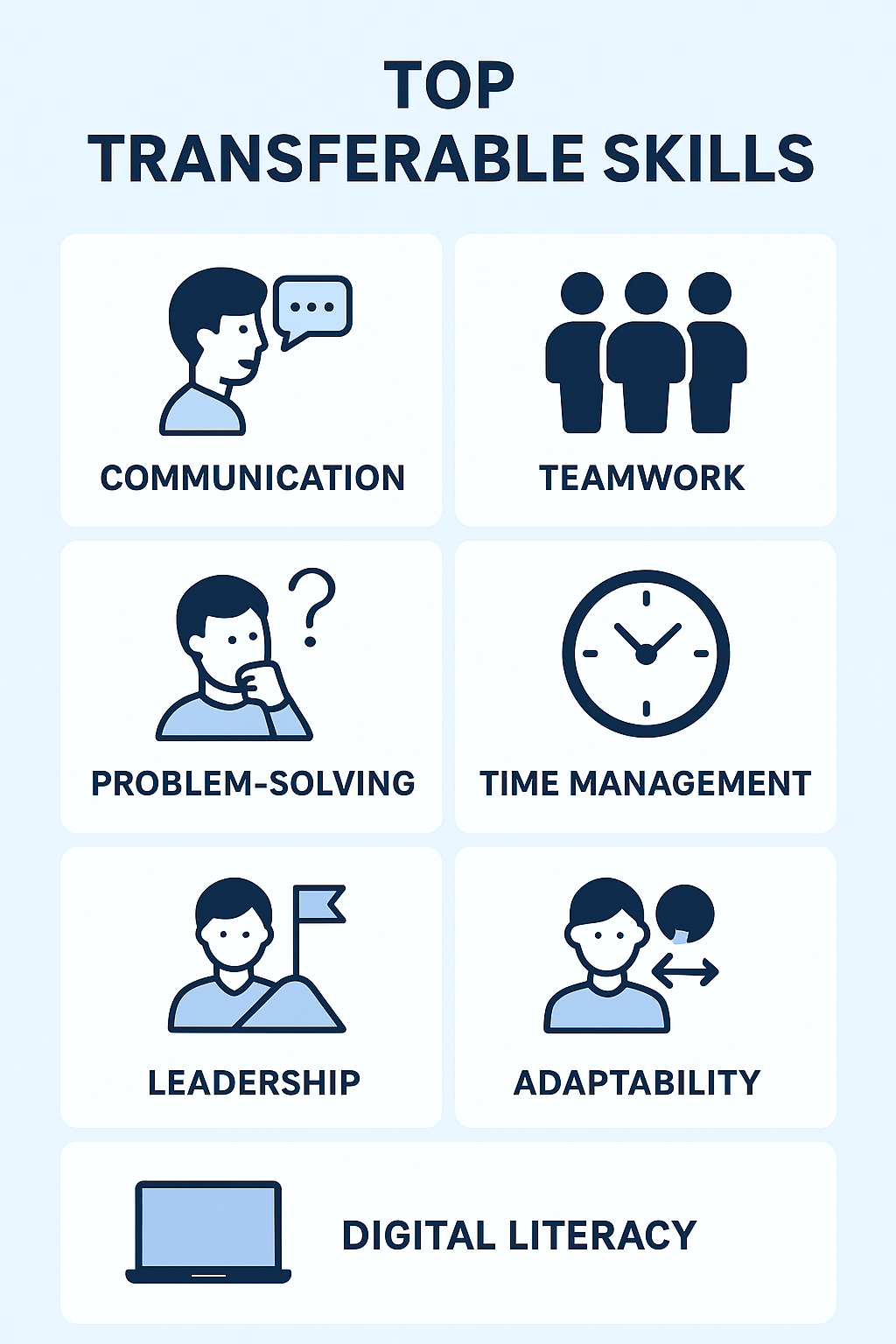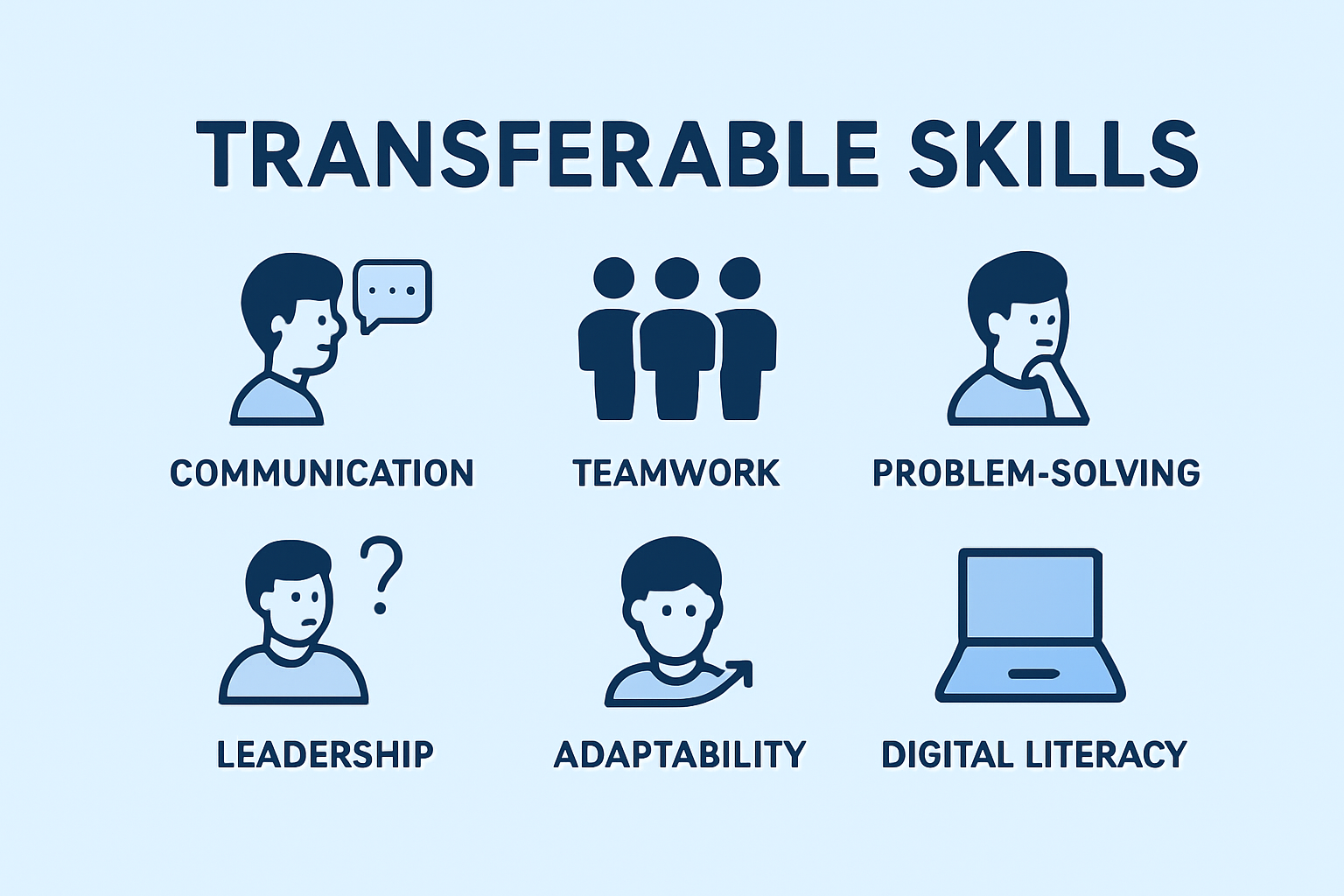When you apply for a job, employers look for more than just technical knowledge. They want to see if you have the skills to work with others and solve problems. These are known as transferable skills. They are valuable because they can be used in many different industries and roles. Whether you are in tech, finance, marketing, or healthcare, transferable skills help you get hired.
What Are Transferable Skills?
Transferable skills are abilities you carry from one role to another. They aren’t tied to a specific job or industry. For instance, skills like communication, leadership, and problem-solving are useful whether you are a software engineer, teacher, or business analyst. These skills provide flexibility. They also make it easier to change careers since employers appreciate them everywhere.
Why Are Transferable Skills Important?
Employers understand that technical tools change quickly, but core transferable skills stay the same. If you are skilled in communication, teamwork, or leadership, you can adjust to new environments rapidly. For recent graduates, transferable skills help close the gap when you lack years of experience. They demonstrate that you are capable of learning and contributing.
Top Transferable Skills Employers Search For

Communication Skills:
Clear communication is essential in every role. The ability to explain ideas, write well, and listen actively makes you a valuable team member. Employers recognize this in interviews and group projects.
Teamwork and Collaboration:
No one works alone. Employers seek people who can collaborate with diverse teams and respect different viewpoints. Good teamwork leads to better results and a positive workplace culture.
Problem-Solving:
Every industry faces challenges. Employers look for candidates who can think critically and find solutions. Problem-solving shows creativity, adaptability, and initiative.
Time Management:
Meeting deadlines is crucial in any job. Strong time management skills demonstrate that you can balance tasks and work efficiently without losing focus.
Leadership:
Leadership isn’t just about managing teams; it’s also about taking ownership and guiding projects. Even as a newcomer, showing leadership in internships or college activities can help you stand out.
Adaptability: Industries change rapidly. Adaptability means you can learn new tools, manage change, and stay productive. It shows resilience, which employers highly value.
Digital Literacy: Today, every industry relies on digital tools. Basic knowledge of productivity apps, data tools, or communication platforms indicates that you can keep up with modern workplaces.
How to Highlight Transferable Skills
Employers want to know you have these skills, but they also want to see examples. You can demonstrate transferable skills through:
Your Resume: Focus on achievements rather than tasks. For example, “Led a 5-member team project that reduced costs by 15%.”
Interviews:Use the STAR method (Situation, Task, Action, Result) to explain how you applied these skills.
LinkedIn and Online Profiles: Share projects, certificates, or blogs that illustrate your skills.
Your degree provides knowledge, but transferable skills make you employable anywhere. They show that you can work with others and deliver results. The stronger these skills are, the more confident employers will feel about hiring you. Do not wait to develop them. Begin practicing communication, teamwork, and problem-solving in your everyday student or work life. These skills will benefit you no matter where your career takes you.
Ready to showcase your transferable skills in a professional way? Use Salahkart’s AI-powered resume builder to highlight your strengths and make your resume stand out across industries.

Leave a Reply